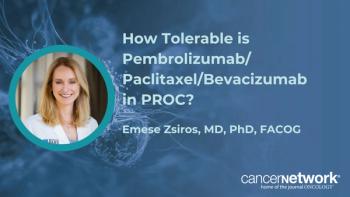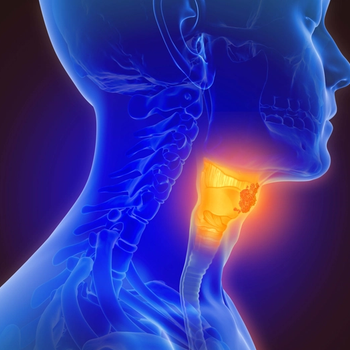
Liquid Biopsy May Help Detect Sarcomatoid Features in Renal Cell Carcinoma
An epigenomic profiling approach may help pick up the entire tumor burden, thereby assisting with detecting sarcomatoid features in those with RCC.
In a conversation with CancerNetwork® at the
Specifically, Semaan, a postdoctoral oncology research fellow at Dana-Farber Cancer Institute, highlighted how this epigenomic approach may help avoid the sampling errors associated with standard tumor biopsy strategies. He stated that sarcomatoid features may not always be detectable when performing a tumor biopsy for those with metastatic disease. With the liquid biopsy approach, however, clinicians can use the aggregate of cell-free DNA through a plasma sample to assess the entire tumor burden. This process may thereby make it easier to detect sarcomatoid-specific features in patients with metastatic disease.
Findings from a proof-of-concept study presented at KCRS demonstrated that this liquid biopsy tool may also mitigate the challenges of spatial heterogeneity that can interfere with accurately detecting sarcomatoid differentiation. Investigators hypothesized that these results may set a paradigm for identifying histologic subtypes and yielding real-time clinical implications based on epigenomic correlations from cell-free DNA.
Transcript:
When you perform a tumor biopsy on the patient or just a metastatic tumor, sarcomatoid features are not present in the whole tumor; they can be present in some metastases, and [for] some other [tumors], they might just not be present.
What can happen is that you sample metastases that do not present sarcomatoid features, and they are present somewhere else. The advantage in liquid biopsy is that it picks up the whole tumor burden. It’s the aggregate of the [cell-free] DNA of the whole tumor burden of the patient across [the whole] body from the primary tumor if they didn’t undergo nephrectomy yet, and the whole metastasis in the body. The fact that it picks up the whole tumor burden makes it easier to detect any sarcomatoid-specific signal in this liquid biopsy assay.
Reference
Semaan K, Zarif TE, Eid M, et al. Liquid biopsy epigenomic profiling for the detection of sarcomatoid renal cell carcinoma. Presented at the 2024 Kidney Cancer Research Summit; July 11-12, 2023; Boston, MA. Abstract 44.
Newsletter
Stay up to date on recent advances in the multidisciplinary approach to cancer.










































